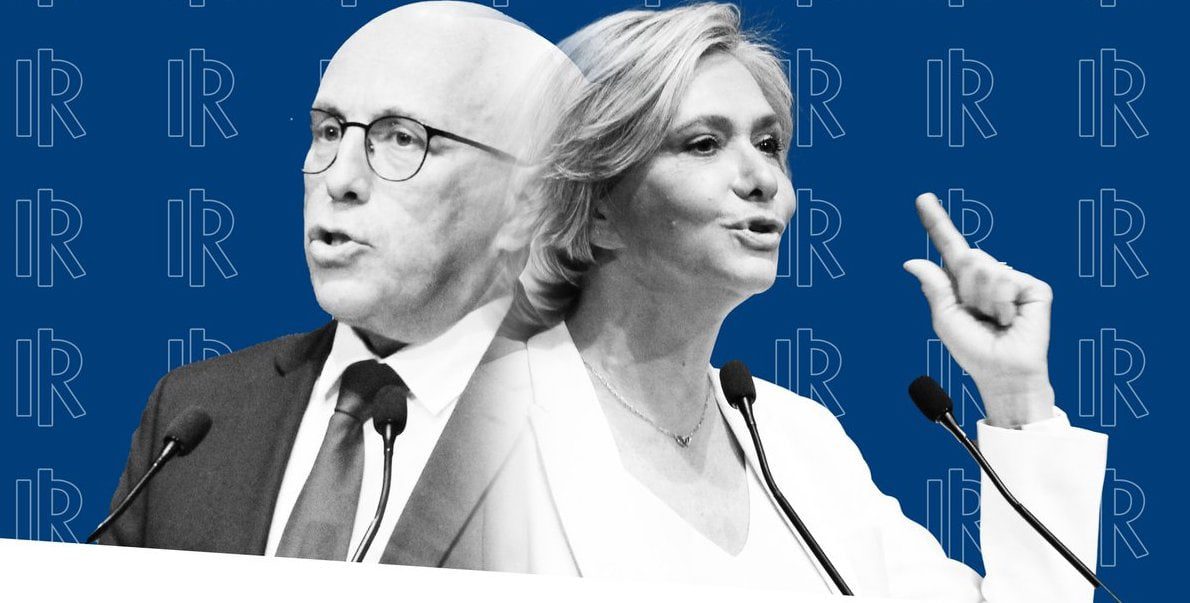
In French politics, the calendar is behind schedule. Tomorrow, Saturday, December 4th, the main right-wing government party, Les Républicains, will learn the name of its candidate for the presidential election to be held next spring. The selection was particularly long because nothing was clear in the process, which was not the case for the previous election. For the 2017 election, everything had been decided by spring of 2015.
This time around, the candidate nomination was held up by adjudication of the method of selection, under scrutiny because of disappointment in the last cycle’s process. Previously, Les Républicains had chosen to hold primaries for the 2017 election, which is not in the tradition of the French Right, and these primaries had resulted in the choice of the unfortunate candidate François Fillon. The memory of it was therefore bitter. After long months of debate, in September 2021, Les Républicains militants adopted the principle of a ‘congress’—and not that of a primary, even if the difference is small. The congress is limited to only up-to-date members, while the primary is widely open to outside participation, merely requiring a fee of two euros to take part in 2017’s primary.
Then arose the question of the candidates themselves. Two favorites of the media, Valérie Pécresse and Xavier Bertrand, had slammed the door on the party because of ideological concerns. Anxious to maintain good relations with La République En Marche, the party of Emmanuel Macron, both sought to adopt a centrist position and criticized the right-handed drift of Laurent Wauquiez at the head of Les Républicains. Following a series of psychodramatic twists and turns, given the demands imposed by the congress format, Valérie Pécresse and Xavier Bertrand were brought back into the party to be able to participate in the race. Their return was all the more expected as Laurent Wauquiez, President of the second region of France, Auvergne-Rhône-Alpes, chose to withdraw, judging that his time had not yet come.
During recent months, Les Républicains have suffered from a real lack of credibility. Their procrastination over how to nominate their candidate made them appear wishy-washy by a delayed entry into the campaign, while Marine Le Pen announced her candidacy early on. They were also discredited by their ideological vagueness: at first, they encountered difficulty in distinguishing themselves from Emmanuel Macron, with whom they share political positions and the same anthropological vision. Later however, with the rise of a possible Zemmour candidacy, they took up talking points such as French identity, firm immigration policy, and national security. They played the card of respectability and continuity, and thereby succeeded in reassuring a large part of the electorate of the governmental right’s focus, which then served to mobilize members. The party grew to 150,000, which had not been seen for a very long time for Les Républicains.
The first round of those elections was held in hybrid form, both online and in federation offices, between Wednesday, December 1st and Thursday, December 2nd. The results were known in the early afternoon of Thursday, December 2nd: to everyone’s surprise, candidate Xavier Bertrand, previously presented as the favorite, did not advance to the second round. Valérie Pécresse, President of the Île-de-France, and Éric Ciotti, the outsider from the south who had made a spectacular rise in the past few days, both qualified, with Ciotti at the head of the ballot. Now, the candidates have very little time to reorganize themselves for the second round, and to make alliances with the losers. Starting Friday, December 3rd, 8 a.m., they will no longer be able to campaign until the end of the second-round vote on Saturday, December 4th at 2 p.m. Philippe Juvin and Xavier Bertrand have already announced their support for Valérie Pécresse.
The qualification of Valérie Pécresse and Éric Ciotti is unexpected—proving that in politics nothing is ever written in advance. The rise of Ciotti, who was the most right-wing candidate of the five contenders, would prove that the ideological work carried out by Éric Zemmour outside the party has borne fruit indirectly. The voters of the Republican party have shown by this choice that they are sensitive to an ascending right-wing discourse, but are not necessarily ready to see Zemmour embody that discourse. The game therefore remains very open.
